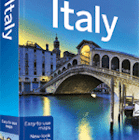

Though it was probably no picnic for the residents that endured it, Siena's centuries-long economic downturn during Medici rule can now be appreciated as a retroactive blessing. The lack of medieval funds to undertake demolition or new construction (along with the French taking Siena with virtually no opposition or damage in WWII) has left the city in a fantastically well-preserved Gothic state.
The result, Siena’s twisting historic center, a Unesco World Heritage Site, is among Italy's finest strolling grounds. Magnificent buildings like the Palazzo Comunale and the wondrously ornamental cathedral demand top billing. Yet with nearly all of Siena’s preserved/restored center being postcard-worthy, one could easily spend 48 hours here without spending a single euro on admission fees and still come away fulfilled and enthralled.
That said, the following is a prospective itinerary for those wanting to explore behind the city’s mesmerizing façades, with breaks in some of the city’s profusion of fine restaurants.
Day 1
Siena was the first European city to limit motor traffic in its historic center back in 1966, making the city especially pleasant to explore on foot. For a sensory overload spike, head for Piazza del Duomo to absorb the cathedral, one of Italy's finest Gothic structures. Construction was largely completed between 1196 and 1215, though work continued well into the 13th century. Gaze at the white, green and red marble exterior façade, before entering to enjoy the cathedral’s primary feature, the inlaid-marble floor, decorated with 56 detailed panels executed between the 14th to 16th centuries.
Hungry? Head to slow food-endorsed Il Carroccio (closed Wednesdays) for lunch - though a note of caution, get there much later than 12:30pm and you'll risk a prolonged wait out on the sidewalk. Their pasta offerings include the especially popular pici, a thick spaghetti typical to the region.
Unless the weather is just too good to miss, head back to Piazza del Duomo for the three-in-one Museale di Santa Maria della Scala which is, even at a jog, a two-hour indoor commitment. This former hospice for pilgrims and, until relatively recently, a working hospital, contains almost a millennium of history, religious art and ruins. Vivid, secular frescoes by Domenico di Bartolo lauding the good works of the hospital and its patrons fill the ground floor along with the Chiesa della Santissima Annunziata, a 13th-century church (remodeled in the 15th century). Downstairs you'll find the original paneling from Fonte Gaia, the famous fountain in Piazza del Campo, as well as a gloomy, but intriguing little chapel. Finally, housed in ancient, arched basement tunnels, is the Museo Archeologico containing a vast collection of pieces found near Siena, including elaborate Etruscan alabaster funerary urns and gold Roman coins.
When you're ready for dinner, head to (Via dei Termini 7; closed Sundays). However, be prepared for some difficult decision-making; the ache that accompanies the first viewing of the menu at Enoteca I Terzi can be especially acute if you know you're only getting one shot at ordering from the frequently changing handmade pasta list and main course options, including suckling pig with plums in apple sauce.
Day 2
Once basic Siena orientation is established, it’s especially pleasing to climb the 400 steps of Torre del Mangia for pulse-quickening views of the city. The tower, built on Piazza del Campo in 1344, was at the time a remarkable engineering feat and one of the tallest nonsectarian towers in Italy (102 meters).
Lunch at L'Osteria is done with 50% locals, 50% tourists and 100% occupancy, so endeavor to arrive as near to noon as possible. Despite increasing popularity with visitors, this is still strictly a neighborhood place, serving uncomplicated dishes at everyday prices, including the unspeakably savory antipasto of sardines in pesto oil.
Saint Catherine of Siena (1347-1380) is co-patron saint of Italy and one of Europe's patron saints. Following the Saint Catherine trail is, oddly, one of Siena’s less crowded diversions. Begin by stepping into tiny Casa di Santa Caterina where Catherine was born and lived with her parents and her, legend has it, 23 siblings. The rooms were converted into small chapels in the 15th century and are decorated with frescoes depicting her life. Adjacent to the lower-level chapel is Catherine’s virtually untouched, nearly bare cell.
For more of Catherine, quite literally, visit the imposing, 13th-century Chiesa di San Domenico, just a few minutes west on Piazza San Domenico. The much altered, barnlike interior is where Catherine took her vows and, allegedly, performed miracles. The chapel contains a portrait painted during her lifetime, but the, ahem, headliner is Saint Catherine’s severed head, displayed in a 15th-century tabernacle. Nearby is her desiccated thumb. Most of the remainder of her body is preserved in Rome.
Claustrophobics may want to steer clear of the lower dining levels at Antica Osteria da Divo, which are housed in Etruscan tombs. This splurge-worthy place serves a variety of inventive dishes include the rolled pork filled with Tuscan bacon and fresh pecorino cheese, truffle sauce and potatoes purée. Reservations are strongly recommended.

Discover the secret – and not so secret – bits of the country with our
Explore related stories

Cultural Site
Tuscan road trip: a flexible itinerary across the region's highlightsSep 30, 2024 • 4 min read

 ShoppingFlorence in 5 Shops: Tuscan leather, hand-painted ceramics and sculpture souvenirs
ShoppingFlorence in 5 Shops: Tuscan leather, hand-painted ceramics and sculpture souvenirsFeb 21, 2024 • 4 min read

 Art and CultureRome vs Florence: how to choose the perfect Italian city for you
Art and CultureRome vs Florence: how to choose the perfect Italian city for youFeb 8, 2022 • 7 min read

 HotelsDid you know you can stay in the place where The English Patient was filmed?
HotelsDid you know you can stay in the place where The English Patient was filmed?Jul 12, 2018 • 2 min read



